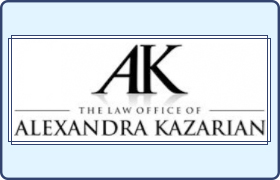 Newport Beach RICO Act Lawyers, California
Newport Beach RICO Act Lawyers, California
Sponsored Law Firm
-
 x
x

Click For More Info:
-
The Law Office of Alexandra Kazarian
15851 Whittier Blvd Whittier, CA 90603» view mapCriminal Law Aggressive & Experienced Criminal Defense
Trust the Law Office of Alexandra Kazarian with your Criminal Defense Case in Whittier & Los Angeles California.
800-773-5851
Lawyers
1-2 of 2 matches
Criminal, Litigation, RICO Act, White Collar Crime
Criminal, White Collar Crime, RICO Act, Felony




 Alexandra Kazarian Whittier, CA
Alexandra Kazarian Whittier, CA AboutAlexandra Kazarian Law Firm
AboutAlexandra Kazarian Law Firm Practice AreasExpertise
Practice AreasExpertise